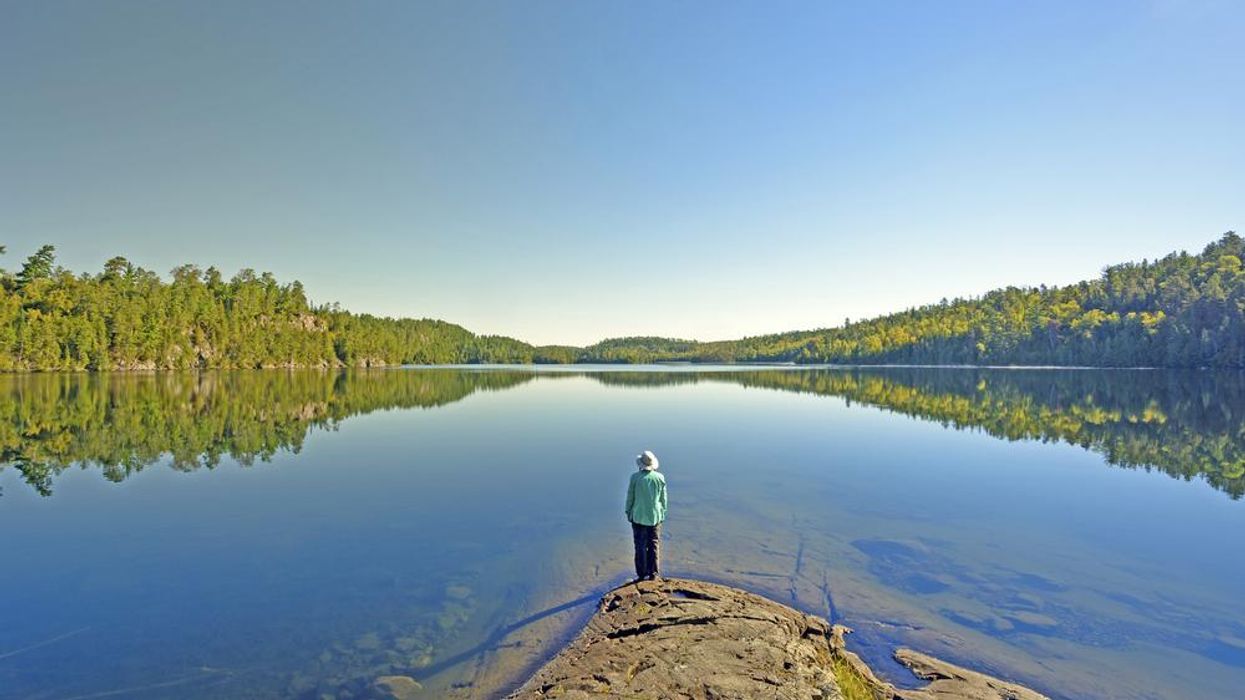The Biden Administration has banned mining for twenty years in a vast area near Minnesota's Boundary Waters Canoe Area Wilderness, protecting vital watershed from potential environmental damage.
The Trump Administration previously greenlit cooper, nickel, and other hard-rock mining near the Canadian border, which is home to the most heavily visited wilderness area in the country.
The Boundary Waters are the lakes and wilderness areas northwest of Lake Superior, on the border between Minnesota and Canada. While they are a popular tourist site for canoeing and kayaking, the 1,090,000-acre territory is also part of the Rainy River Watershed, a large swath of wetlands in the state.
Watersheds are areas that channel rainfall and snowmelt to creeks, streams, and rivers, which eventually takes it to reservoirs, bays, and the ocean. They are vital to ecosystems, as they clean drinking water and stabilize soils.
The Biden Administration's protections encompass 225,000 acres of watershed, stopping potential toxic leaching from harming the environment, as well as local Native American communities.
“The Department of the Interior takes seriously our obligations to steward public lands and waters on behalf of all Americans,” Interior Secretary Deb Haaland said in a statement. “Protecting a place like Boundary Waters is key to supporting the health of the watershed and its surrounding wildlife, upholding our Tribal trust and treaty responsibilities, and boosting the local recreation economy.”
Mining companies in the area were upset by the decision, as the minerals could aide the transition to green energy, and help meet President Biden's goals on “electrification, the energy transition and supply chain security.”
“At a time when demand for minerals such as copper, nickel and cobalt are skyrocketing for use in electric vehicles and solar and wind infrastructure," Rich Nolan, president of the National Mining Association said via The Washington Post. "The administration is withdrawing hundreds of thousands of acres of land that could provide U.S. manufacturers with plentiful sources of these same minerals."
However, a 2021 report from the Biden Administration deemed that mining damage would alter The Boundary Waters landscape beyond rehabilitation, as the report found several examples from the past decade where such damage was caused in the region, after containment efforts failed.
As the waters are "irreplaceable," campaign director for the National Parks Conservation Association Christine R. Goepfert added that any damage to the wetlands would be too significant to risk.
“Acid pollution from sulfide mines as far away as 100 miles threaten the park’s waters and all who visit. Even small amounts of this pollution is detrimental to public health," she said. "Banning mining activities in the region’s prized Boundary Waters will protect the broader park ecosystem now and for years to come.”
- How to Compost in a Way that's Most Beneficial to the Environment ›
- EPA Confronts Environmental Racism in Cancer Alley ›
- Period Underwear Is Better for the Environment, But Does It Work? ›
- President Biden Calls on Lawmakers to Stop Gun Violence Following Michigan Shooting - Advocate Channel ›



















































